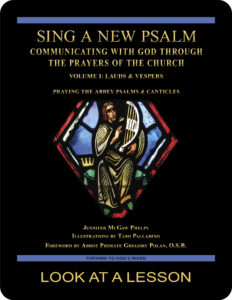exalt, exult & extol
 Throughout Scripture, we see three similar-sounding words used to describe praise of God: exalt, exult, and extol. A reader has asked for a discussion about the roots of these three words and what it means to praise God. If you have questions you’d like to see addressed in Lost in Translation, you can use this link to contact me via email.
Throughout Scripture, we see three similar-sounding words used to describe praise of God: exalt, exult, and extol. A reader has asked for a discussion about the roots of these three words and what it means to praise God. If you have questions you’d like to see addressed in Lost in Translation, you can use this link to contact me via email.
All three of these words—exalt, exult, and extol—come from Latin, and all three share the same prefix, ex, which means “up” or “out”—up in these cases. The difference in their meaning is due to the different root of each word. Exalt comes from the word altus meaning high, and so to exalt someone or something means to view that person or thing as up high or superior. Exult comes from salire, “to jump,” and so to exult is to jump with joy or praise. Extol comes from tollere meaning to raise or elevate, and so to extol means “to raise, to elevate, or to make high.”
In all three of these cases, we see the common idea from the prefix ex of something that is up or high. Praise is reserved for a higher thing or person. When we exalt something, we acknowledge that it is high. When we exult something, we jump up ourselves in joy, and when we extol something, we attempt by our praise to raise it up. How do you praise God?
related topic: Ascension; Assumption
you also may like Volume I of our Psalms study
 Sing a New Psalm: Communicating with God Through the Prayers of the Church—Volume I: Lauds & Vespers provides an in-depth look at Psalms prayed in morning and evening liturgies. (Volume II, set for publication in 2024, looks at Vigils, Day Prayer & Compline.) The study is based on The Abbey Psalms and Canticles, a translation prepared by the Benedictine monks of Conception Abbey and published by the United States Conference of Catholic Bishops (USCCB). Click on the book’s cover to view a sample lesson.
Sing a New Psalm: Communicating with God Through the Prayers of the Church—Volume I: Lauds & Vespers provides an in-depth look at Psalms prayed in morning and evening liturgies. (Volume II, set for publication in 2024, looks at Vigils, Day Prayer & Compline.) The study is based on The Abbey Psalms and Canticles, a translation prepared by the Benedictine monks of Conception Abbey and published by the United States Conference of Catholic Bishops (USCCB). Click on the book’s cover to view a sample lesson.
 Click on the picture of the statue of Moses with horns (above) to learn more about Lost in Translation. A new entry is archived each Monday. Contact us to receive Lost in Translation by email every week. You may use any of the contact links on our website to ask Matthew a question.
Click on the picture of the statue of Moses with horns (above) to learn more about Lost in Translation. A new entry is archived each Monday. Contact us to receive Lost in Translation by email every week. You may use any of the contact links on our website to ask Matthew a question.

Leave a Reply
You must be logged in to post a comment.